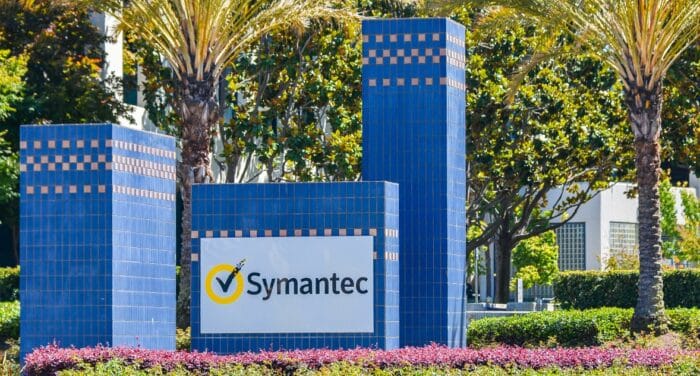
Symantec investors have asked a federal court judge to approve a $70 million settlement with the cybersecurity company and its board, who allegedly falsified the company’s quarterly revenues to safeguard executive bonuses.
The investors, led by Lead plaintiff SEB Investment Management AB, asked U.S. District Judge William Alsup to approve the “excellent” settlement that took more than three years of litigation and negotiation to reach, Law360 reports.
“Lead Plaintiff submits that the settlement represents an excellent result for the class and ultimately should be approved by this court, especially given the significant risks, costs and delays of continued litigation, including the resolution of the pending motion for summary judgment, a trial and the inevitable appeals,” the investors said.
The investors initially filed class action lawsuits against Symantec in 2018, when it was discovered that former Symantec CEO Gregory S. Clark and other board members manipulated financial results to make financial performance appear stronger in order to line its executives’ pockets, Law360 reports.
When news broke of the scheme, Symantec stock (NASDAQ: NLOK) dropped by 33 percent and around $6 billion of market capitalization completely disappeared, the Symantec class action lawsuit alleges. The investors allege that they suffered substantial losses, and are demanding damages from the company.
In asking Alsup to approve the settlement, the investors said they were in danger of recovering nothing, and they would have faced an uphill battle at summary judgment and trial.
Symantec said in its motion for summary judgment that it did not misclassify any expenses and that it did not knowingly make any false statements, Law360 reports, and it added that the investors could not prove loss causation and that there were no damages.
As part of the Symantec settlement, the cybersecurity company would put $70 million into an interest-bearing escrow account. The account would be divvied between the Class members after attorney fees, litigation expenses, and other fees were deducted.
Do you own stock in Symantec? Let us know what you think about the $70 million settlement in the comments section!
The investors are represented by Jonathan D. Uslaner, Salvatore J. Graziano, Jeroen Van Kwawegen, Jeremy Robinson, Rebecca E. Boon and R. Ryan Dykhouse of Bernstein Litowitz Berger & Grossmann LLP.
Symantec is represented by Caz Hashemi, Jerome F. Birn Jr., Rodney G. Strickland and Jessica L. Snorgrass of Wilson Sonsini Goodrich & Rosati.
The Symantec SEC Class Action Lawsuit is SEB Investment Management AB v. Symantec Corp. et al., Case No. 3:18-cv-02902, in the U.S. District Court for the Northern District of California.
Don’t Miss Out!
Check out our list of Class Action Lawsuits and Class Action Settlements you may qualify to join!
Read About More Class Action Lawsuits & Class Action Settlements:














